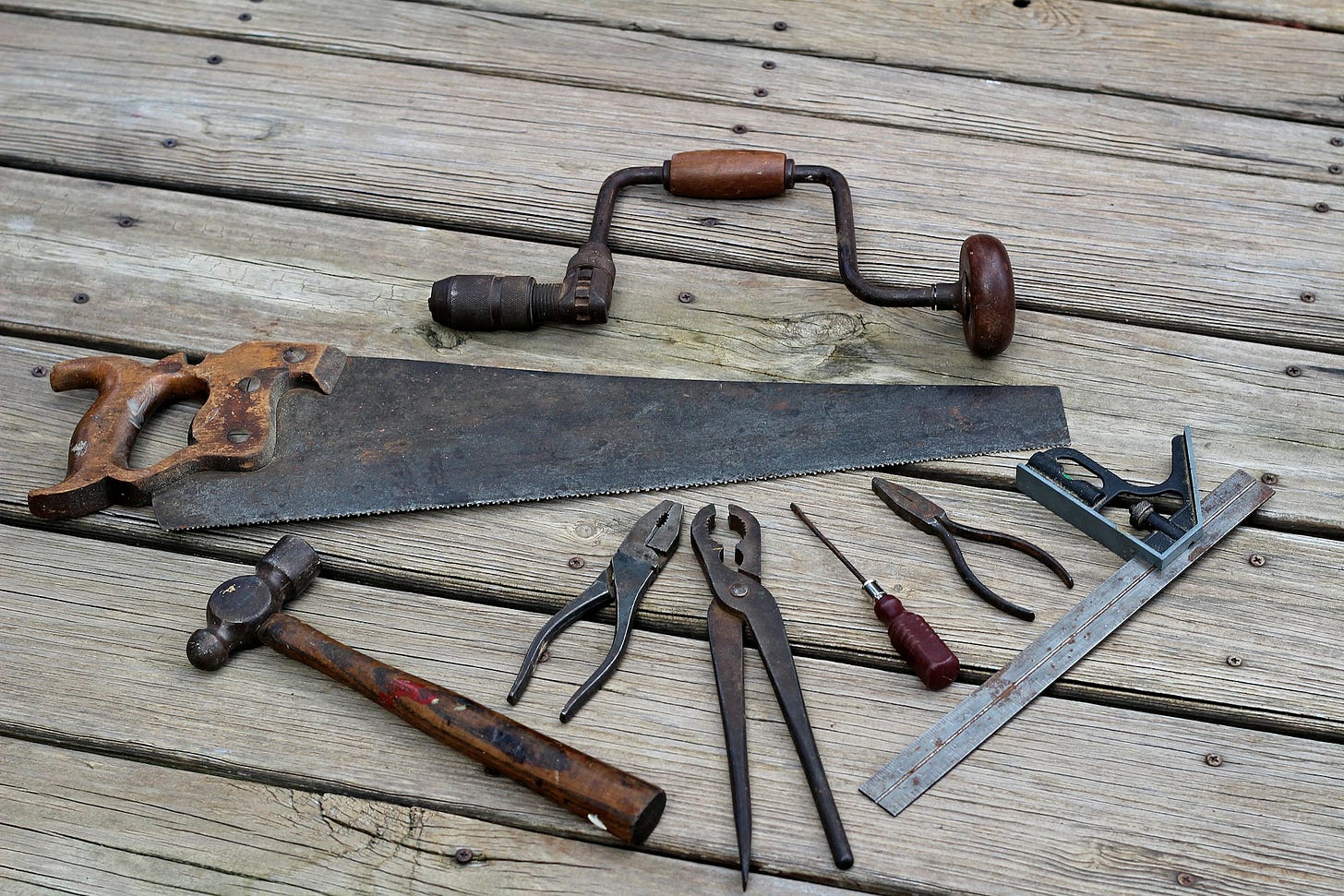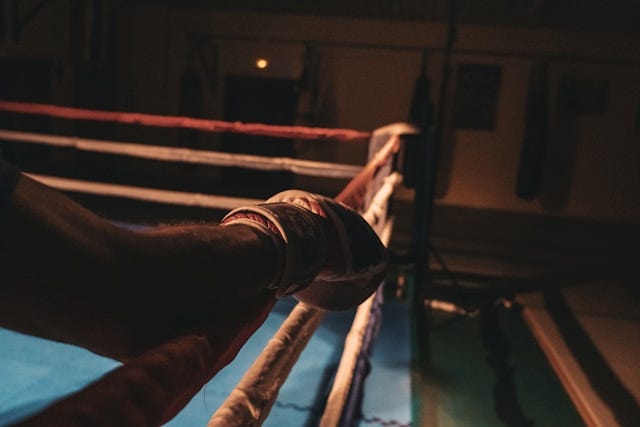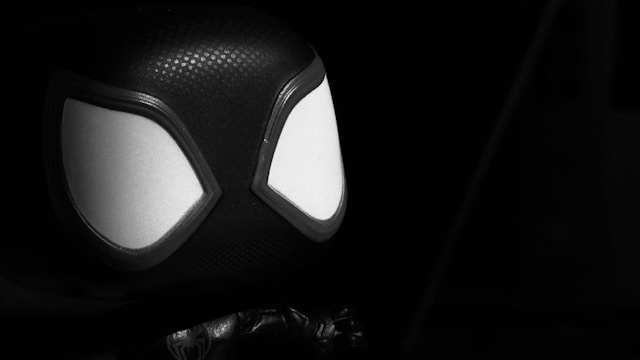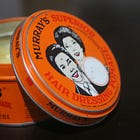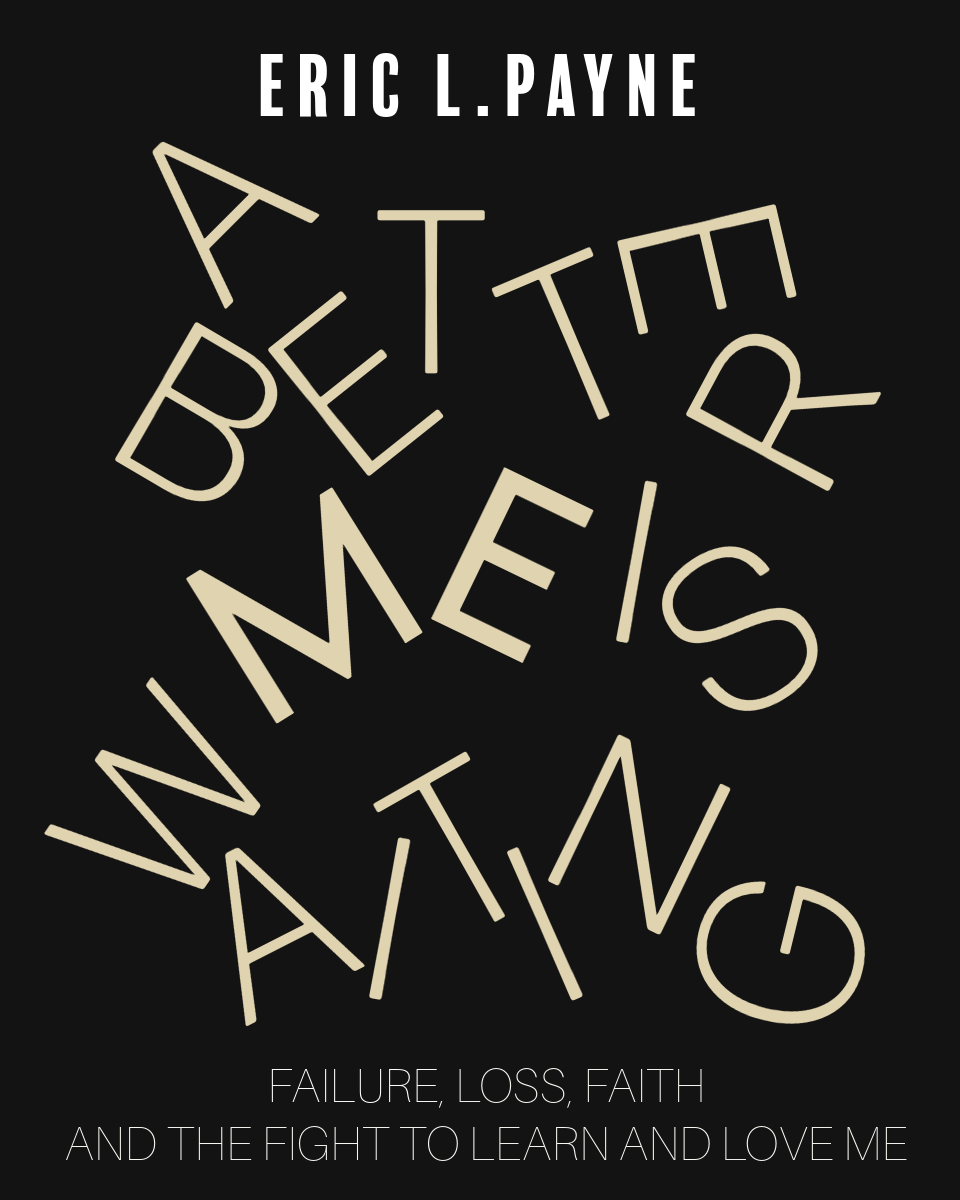Built to Endure, Not to Live
Chapter 2, Part 1 of A Better Me is Waiting, my memoir-in-progress. As a child, I turned a coping mechanism into a superpower. The impact of this innocent act would impact me negatively for decades.
My picturesque destination wedding on the South Coast of Barbados was nothing short of spectacular. Maybe even magical. We managed to pull it off for just under twenty-thousand dollars. Had we gotten married during the age of social media and influence rather than at its start, we could’ve gotten some decent brands to pay part of that back and maybe even made a little money.
I use the term “we” loosely because my ex-wife did most of the planning. I fell prey to the archaic and misogynistic belief that my only role was to pay for what she wanted. It wasn't until I arrived on the island with my parents and our youngest child a couple of days after she did that I realized I had an opinion. I had an opinion on the table settings for the reception, the meals, the number of people in our wedding party, our videographer, or the lack thereof, and the minister presiding over our ceremony. I felt entitled voice my complaints because I was the check writer. But it was too little, too late. Years later, a creative vice president at my marketing firm mentioned in passing that he was involved with every aspect of his wedding because it was the first proving ground for how he and his wife would work together. He said it was his first real opportunity to learn who they both were under pressure. After listening to him, I cringed at the idea that I forfeited my chance to do the same.
For months, I had a chance to let my feelings be known and provide real input. When she asked, I told her I was okay with everything because back then, I was okay with everything—until I wasn't.
I was a decisive person's worst nightmare. It was easier to be okay with things up front, let them unfold, and then complain about how I would’ve preferred them to be. Fast forward seven years, during group counseling, when my marriage was on life support, I learned that my aversion to conflict reached back into my childhood.
Tender Loving Condescension
Growing up, my father, in addition to being well-read, was a self-proclaimed know-it-all who had little patience for my mother. Mansplaining would be a modern day word for it. He often spoke condescendingly to her, so much so that it gave me chest pains listening to him. Mom was a teacher but wasn’t a mind like my dad. She never seemed very interested in learning about the complexities and intricacies of life. She trusted God explicitly and often responded and reacted from an emotional place counter to his knowledge-backed one.
Mom often made my wins or issues hers. Roughly a decade ago, when I called her up, excited over my shiny new divorce mobile and all its bells and whistles, she said she needed to take her car back to the dealership because the driver-side mat was shedding. For the rest of the time we spoke, I listened to her talk about her favorite salesman at the dealership, whether she should get a new car, and how badly her car needed to be washed. Deflated, I let her go on without complaint until she said goodbye. She didn't even ask what was the color of my car. It was less about the car and more about the fact that after what I had been through with my ex-wife, I had finally done something nice for myself. It was me telling my mom the girls didn’t like me, and her responding, “You’re gonna be a lady-killer when you grow up. Look at those lips!” all over again. This happened all the time. I let it pass because that’s all I knew how to do. She was my mom. Eventually, time and several years of therapy would teach me how to teach her to listen to me.
My dad, however, was a different creature from a different era. During my childhood, I don’t remember seeing him treat Mom with tenderness. His tone when talking to her suggested he could barely tolerate her questions or lack of awareness on specific subjects. He was quick to correct her, as if she was a child, as if she was me, or question why she thought the way she did. He was consistent, demeaning her at home and in public. Her responses would range from pleading with him not to speak to her the way he did to sharply expressing her dislike for his tone. But nothing ever changed between them.
It made me wonder if he actually liked her because, despite my young mind, I was wise enough to recognize that marriage was a choice, and since she seemed to irk him so much, why did he choose her? Why was there a gigantic, white, cushioned hardcover book in the living room with pictures as big as a small card table of their elaborate wedding that packed out Ebenezer Baptist Church on the South Side of Chicago? Why did they seem so happy in that picture where she shoved cake in his mouth? They hadn’t had me out of wedlock. Nothing else had forced them to get together. So why did they seem so mismatched?
I got no answers to the questions bouncing around in my head. I didn’t dare ask them out loud. What I did know was I didn’t like how Dad spoke to Mom. I knew I didn’t want to be at odds with someone I was married to. My prepubescent promise to myself was that I wouldn’t do that to my wife when I grew up.
Winning Just Wasn’t Worth It
During my earliest years of school, I fought a lot. At school, I really didn’t like when I was teased about my name, my glasses, or how my parents dressed me. I had no problem retaliating when a classmate said something I didn't like. I won some. I lost others. That’s how it was as a kid.
In first grade, I sacrificed eating lunch one day because I picked up my tray and smashed it over a kid's head who was making fun of me. I didn’t care that I got sent to the principal’s office. But my indifference turned to heart-stopping fear when they called my parents. My father showed up and it was game over for me. I barely made it home that day.
Regardless of my win-loss fight ratio at school, I always lost at home. Despite my good grades, my fighting at school went against everything my father believed in. School was for learning. School was for preparing to be two to three times, or simply unquestionably, better than white people so I could be considered for the same opportunities available to them. School was not a place where I was going to mess up and be some wayward inner-city youth who talked jive, drank, and smoked cigarettes and refer, whatever that was. Dad didn’t care that I was being teased. He couldn’t care less that I was defending our last name. It wasn’t about who did what to me — his son — even when I tearfully begged for mercy.
My father had me when he was thirty-nine years old, which means he had old-man strength and older-man by the time I was a toddler. He had big, heavy hands that had been doing big, heavy things since he was a child. He also used them on me. I saw it coming every time. "It" was the hit. The tell was my father’s tongue, just like Michael Jordan’s, he tucked it into the corner of his mouth, except there was no spectacular, eye-popping feat of basketball prowess that followed. There was just a little black boy forced to hold still and brace for impact because falling down would’ve gotten me into more trouble. Sometimes, I ran, but I never got far. We lived in a cozy, quaint two-bedroom home. Where exactly was I going as a kid in elementary school?
When I would cry, Dad would tell me with a chuckle, “That didn’t hurt that bad.” Then, to add insult to injury, he would talk to me as if nothing happened and threaten me with further punishment if I didn’t fix my attitude. Can a little boy have a few minutes to recuperate before you start asking about my homework? Can I shake off the sting? Please! Jesus!
Eventually, my desire for respect at school took a back seat to my desire to stay safe at home. I went into survival mode. It was easier to get picked on at school and resist my urge to fight back and even develop a rep that I was scared of everybody, than to have to answer for it later with pain and the loss of toy and television privileges. I did what I had to do to make myself small to avoid being seen. If I wasn't seen I reduced my chances of being teased. Sitting alone and passing on opportunities became what I did to stay safe.
Dad broke me, but I wasn’t in the army or any other program where there was a larger plan to build me back up. I learned to push the emotions down, conform, be still and quiet, becoming a spectator in my own life. In my quietude, I grew to hate school, my classmates, and myself. Unlike my parents, I didn't have nine siblings to turn to who might have had my back or kept me busy. The God who lived above my ceilings wasn’t answering my prayers. I wasn’t sure he was even there. Surely, any god who loved me as much as my mother claimed this one did wouldn’t allow me to live this lonely, unheard, serious, and tortured existence as a kid. I was supposed to be laughing, happy, and carefree. Of course my life wasn’t all bad, but with no one there but my parents — who occasionally called me ungrateful on the occasions when I complained to them about them — to guide my thinking, it sure seemed that way.
Perverting People Pleasing Into a Gift
Then it happens, though not all at once. The boy who decided to be non-confrontational during his most impressionable years begins to drink the proverbial Kool Aid. He embraces the old-school, pre-Civil Rights Christianity being espoused in his home. The reward that the meek shall inherit the earth gets shinier and shinier as the years go by. Without really understanding what meek means. The biblical call that one should love others as they love themselves becomes his modus operandi. Then, thanks to being raised in that same old school, neo post-Civil Rights era home, the boy ages into manhood with the indomitable work ethic of his ancestors.
In the real world, he discovers he has the strength and resilience to endure others’ wills being imposed upon him. Not only does he endure pledging his college fraternity, he quietly enjoys it. This misplaced strength and resilience tricks the non-confrontational man into believing it’s okay to have no real boundaries because he can handle everything and seemingly anything thrown at him. Whether it should be happening or not is irrelevant because he knows God loves him. This becomes a point of pride for the man. He begins to think of his “abilities” as “super.” And now he is fully realized. He’s turned his less than positive coping mechanism into a superpower. And like superheroes in comic books, it became his duty to save the people he crossed paths with.
A Sucker is Born
I was part helper, hero, and martyr. I was a performative, self-serving, revolutionary, indestructible doormat that never wore out. People would come to learn they could wipe their feet clean on me because I could take it. It became easy to excuse the unacceptable. God would reward me for the pain, for the setbacks, for the sorrow. I was going to heaven for sure. This played out with friends, in the workplace, and in my relationships.
Meanwhile, just behind my eyes, my anger was growing. But because I believed anger was a sin, I held it captive with my prayers instead of addressing it and finding a release. I moved through my young adult life marginalizing myself, working for my eventual divine reward.
I was a narcissist's dream codependent. Young, principled, strong and dumb.
I was ripe for the picking.
Thanks for reading! Next week, Part 2 of Chapter 2. First time here? Click here to learn more about A Better Me Is Waiting.



